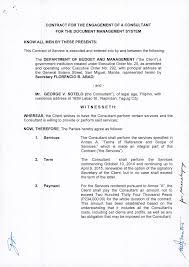
Strategy consultancies are companies that focus on strategy consulting. They can help companies improve their performance and meet their deadlines. These consultancies are typically divided into two types: pure-play firms and consulting firms with a large strategy practice. Mckinsey & Company is a pure-play firm, as are Boston Consulting Group and Bain & Company. Accenture, Capgemini, and L.E.K. are other big consulting firms that have large strategies practices. Consulting, and OC&C Strategy.
Values of strategy consulting
Strategy consulting is an important part of the overall management process. It provides a wide range of services and can help companies solve specific problems. A strategy consulting firm can work closely with company executives to identify key strategic projects, prioritize them, and create plans that will maximize shareholder value and help the company grow.

To be able to help clients effectively, a strategy consultant should have a wide range of skills. They must be organized and have strong judgment. They also must have excellent problem-solving skills, since they will be tasked with gathering vast amounts of data and conducting extensive research. Strategy consultants must also be able deliver precise results.
Strategy consultants spend a lot of time working with clients and teams. They also need to communicate well with employees within the client company. Moreover, they must be adept at writing proposals, conducting presentations, and presenting to various stakeholders. They must also have the ability to be flexible and adapt to changing circumstances.
Values of small boutiques
The super boutique model is a great way to scale quickly and get the most out of your strategy consulting. Boutiques bring together strategic and technical expertise to create specialized engagements for clients. They are also able to give their employees the creative and collaborative space they need to think big and execute like startups. They have plenty of flextime.
The key to being a successful boutique strategy consulting firm is to be familiar with what your competition is doing. While a Fortune 500 company might have the financial resources and the influence to deliver its promises, a boutique consulting business must be able distinguish itself from its competitors. That means being aware of your competition and keeping up with its practices and innovations.

The level of specialization is another major difference between small boutiques and large MBBs. A boutique firm will be less demanding and more focused than a Big4. A boutique firm will be more flexible in hiring and can expect to work on smaller projects.
FAQ
What is the average price you should charge for a consulting job?
It all depends upon what you offer. If you are providing services for free, then there isn't any point in charging anything. However, if you are selling products or services, then you need to set prices based on value.
If you are offering low-quality services, you don't have much to sell. Why would anyone pay anything for you?
If you're providing high-quality services you might ask for a greater price. Because people are aware of the value you provide, they will be more willing to pay you a higher rate. Customers who buy multiple services from you may qualify for discounts.
Do I require legal advice?
Yes! Consultants often create contracts with clients without getting legal advice. This can cause problems later on. For example, what happens if the client terminates the agreement before the consultant's completion date? What happens if your consultant doesn't follow the contract deadlines?
It's best to consult with a lawyer to avoid potential problems.
What skills are necessary for consulting?
Consultants should be able to communicate effectively and have excellent analytical skills. This is essential because you will be working on projects that you don't know the details of. You need to be able to manage people quickly and solve problems efficiently.
A strong communication skill is also necessary. Most clients expect to hear back within 24 hours. If they don’t hear back, they assume that you aren’t interested. It is vital to inform them and make sure that they are fully informed.
What degree do I need to become a consultant?
Studying a subject deeply and then applying your knowledge is the best way for you to become an expert.
Start studying today if you want the skills to be a great manager!
You may not be able to get hired if you don't have relevant experience but a degree. However, if you can demonstrate that you've studied the same subjects as those who got the jobs, you could still apply.
Employers will always be attracted to candidates who are able to apply their real-world skills.
Which industries use consultants
There are many types. Some consultants are focused on a specific type of business, others may specialize in multiple areas.
Some consultants are limited to working for private corporations, while others can represent large corporations.
Many consultants also work internationally to assist companies from all corners of the globe.
Statistics
- Over 50% of consultants get their first consulting client through a referral from their network. (consultingsuccess.com)
- According to statistics from the ONS, the UK has around 300,000 consultants, of which around 63,000 professionals work as management consultants. (consultancy.uk)
- On average, your program increases the sales team's performance by 33%. (consultingsuccess.com)
- "From there, I told them my rates were going up 25%, this is the new hourly rate, and every single one of them said 'done, fine.' (nerdwallet.com)
- WHY choose me: Why your ideal client should choose you (ex: 10 years of experience and 6-week program has helped over 20 clients boost their sales by an average of 33% in 6 months). (consultingsuccess.com)
External Links
How To
How To Find The Best Consultant?
The first thing to do when looking for a new consultant is to ask yourself what you want from him/her. Before you begin searching for a consultant to help you, you should be clear on your expectations. Make a list of everything you think you might need from a consultant. This could include: professional expertise and technical skills, project management capabilities, communication skills, availability, etc. You might also want to talk with colleagues or friends about their recommendations. Ask your friends or colleagues about any negative experiences they have had with consultants, and compare their recommendations with yours. Do some internet research if they don't have recommendations. You can post reviews on your previous work experiences on many websites like LinkedIn, Facebook and Angie's List. Take a look at comments and ratings from others, and use that data to find potential candidates. Finally, once you've got a shortlist of potential candidates, make sure to contact them directly and arrange an interview. At the interview, it is important to discuss your requirements and get their feedback on how they can help. It doesn't matter if they were recommended to your company; all that matters is that they are able to understand your business goals and show how they can help.